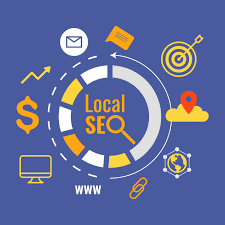In today’s world, having a strong online presence is essential for any business. But for local businesses, the key to standing out is mastering Local SEO. Local SEO (Search Engine Optimization) helps your business appear in local search results, ensuring that your community knows you’re there and ready to serve them. This guide will walk you through the essentials of Local SEO and how you can leverage it to maximize your local reach.
What is Local SEO?
Local SEO is the practice of optimizing your online presence to attract more business from relevant local searches. These searches take place on Google and other search engines. When someone in your area searches for a service you offer, Local SEO ensures your business appears in their results.
Why is Local SEO Important?
- Increased Visibility: Local SEO ensures your business appears in local search results, which means more visibility to potential customers in your area.
- Targeted Traffic: It brings in more targeted traffic, as you attract customers who are specifically looking for your services.
- Competitive Edge: Many businesses still haven’t fully optimized for Local SEO, giving you a competitive advantage.
- Mobile Searches: With the rise of mobile searches, local SEO helps capture those on-the-go customers looking for immediate solutions.
Key Components of Local SEO
1. Google My Business (GMB)
Google My Business is a free tool that allows you to manage how your business appears on Google Search and Maps.
Steps to Optimize GMB:
- Claim Your Business: Make sure you claim and verify your business on GMB.
- Complete Your Profile: Fill out every section of your GMB profile. Include your business name, address, phone number (NAP), website, hours of operation, and a detailed description of your services.
- Regular Updates: Keep your profile updated with any changes in your business. Add photos, posts, and respond to reviews regularly.
2. Local Citations and Directories
Local citations are online mentions of your business’s name, address, and phone number. These citations can appear in local business directories, websites, and social platforms.
Tips for Local Citations:
- Consistency: Ensure your NAP information is consistent across all platforms.
- High-Quality Directories: List your business in high-quality, relevant directories like Yelp, Yellow Pages, and industry-specific directories.
- Avoid Duplicates: Make sure there are no duplicate listings of your business.
3. Reviews and Ratings
Positive reviews and ratings build trust and improve your local search rankings.
How to Get More Reviews:
- Ask for Reviews: Encourage your satisfied customers to leave reviews on Google, Yelp, and other review platforms.
- Respond to Reviews: Engage with your customers by responding to their reviews, whether positive or negative.
- Use Feedback: Use feedback from reviews to improve your services and customer experience.
4. Local Content Marketing
Creating content that is relevant to your local audience helps boost your local SEO efforts.
Local Content Ideas:
- Local Events: Write about local events or news related to your industry.
- Customer Stories: Share testimonials and stories from local customers.
- Local Guides: Create guides or lists that highlight local attractions, businesses, or resources.
5. On-Page SEO for Local Search
Optimizing your website for local search is crucial. This includes using local keywords and providing valuable information.
On-Page SEO Tips:
- Local Keywords: Include local keywords in your titles, meta descriptions, headers, and content. For example, “best bakery in [your city].”
- Contact Information: Ensure your contact information is easily accessible on your website.
- Schema Markup: Use local business schema markup to provide search engines with more information about your business.
Monitoring and Adjusting Your Local SEO Strategy
SEO is not a one-time task; it requires ongoing effort and adjustments.
Tools for Monitoring:
- Google Analytics: Track your website traffic and see how visitors are finding you.
- Google Search Console: Monitor your search performance and fix any issues.
- Local SEO Tools: Use tools like Moz Local, BrightLocal, or Yext to manage your local SEO efforts.
Regular Audits:
- Conduct regular audits of your local SEO to ensure everything is up to date and optimized.
Conclusion
Local SEO is a powerful tool for any business looking to attract more local customers. By optimizing your Google My Business profile, managing local citations, encouraging reviews, creating local content, and optimizing your website, you can significantly improve your local search visibility. Keep monitoring and adjusting your strategy to stay ahead of the competition and ensure your business remains a top choice for local customers. Mastering Local SEO takes time and effort, but the rewards are worth it. By following these steps, you’ll be well on your way to maximizing your local reach and growing your business. Happy SEO!



